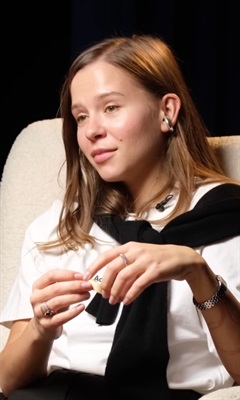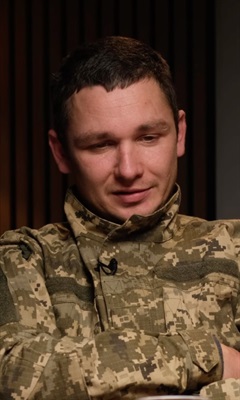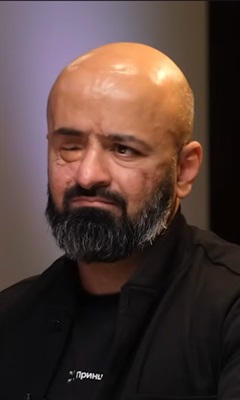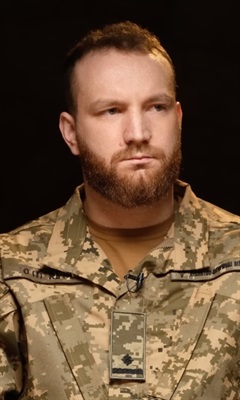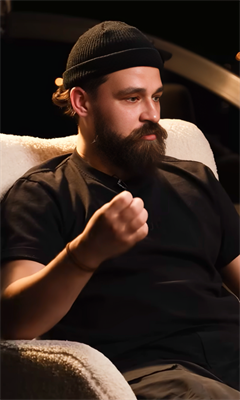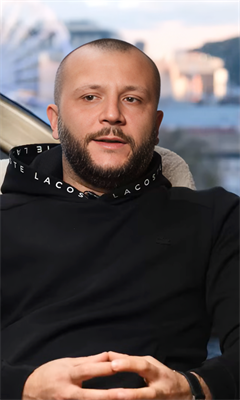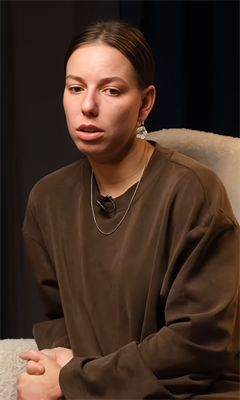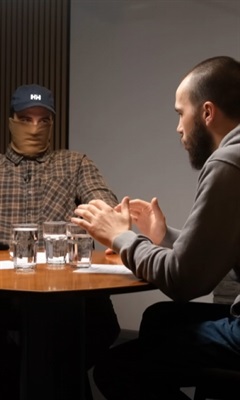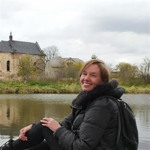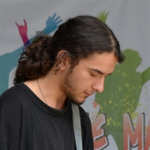30 dogs, 1 cat, 3 people, and 3 bags of food in one car. History of evacuation from Mariupol
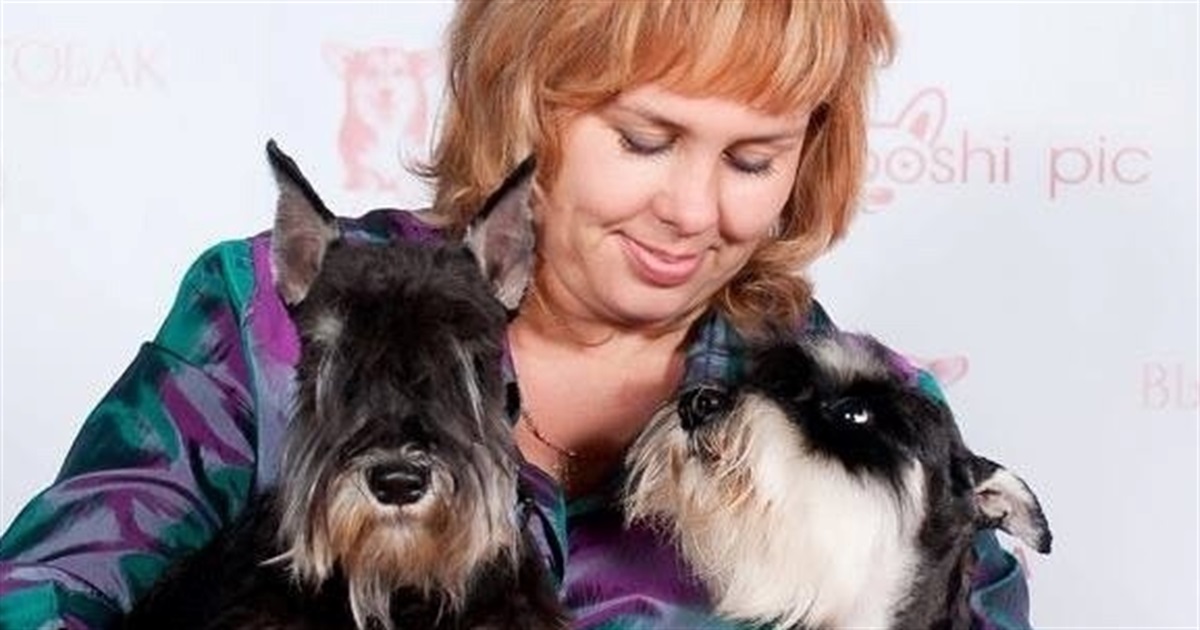
I didn't think there would be a war
Iryna had been living in Mariupol for 52 years, since birth. The woman worked at the Ilyich factory and engaged in dogs as a hobby. Since 2013, she has owned an animal nursery with miniature schnauzers - zwergs. Trofimenko's dogs resemble both Confucius and Otto von Bismarck with their long, lush mustaches.
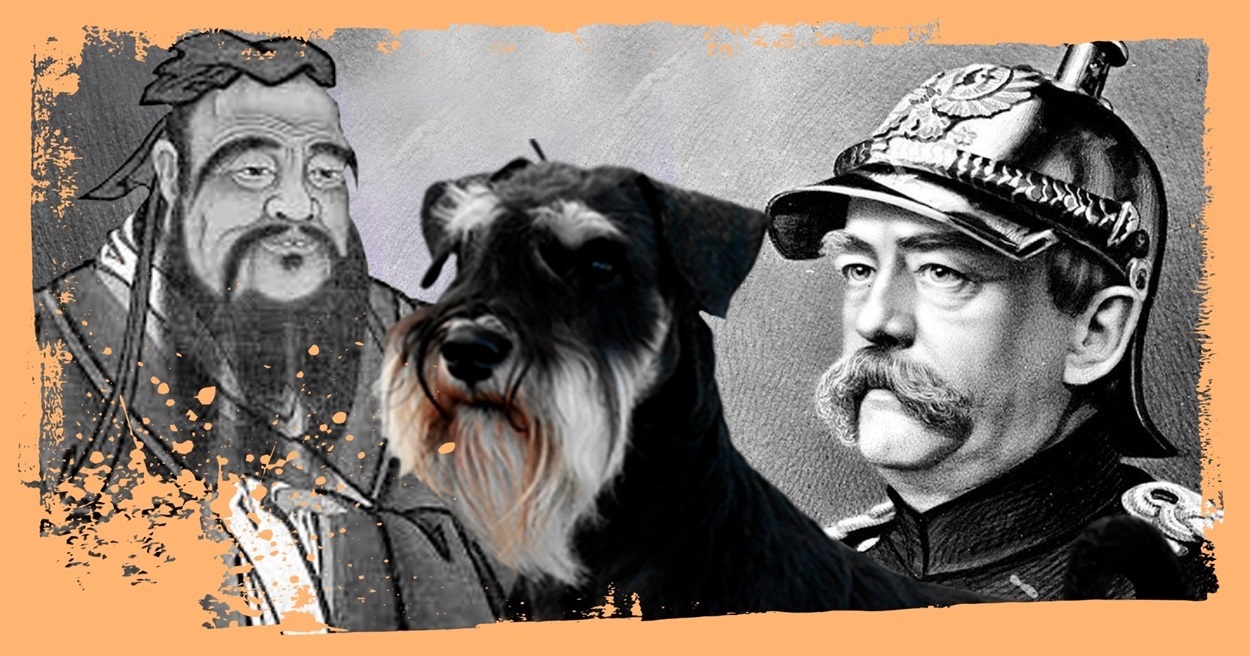 Credits: Evacuation.City
Credits: Evacuation.City
Now the woman has 19 adult dogs and several puppies. She calls the zwergs her children. Their names, habits, diseases, and colors are sprinkled on her every memory: here's an old Lakusha who suffered a stroke and needs medical attention. He still goes outside only in the arms of his proprietress: when he was little, he was afraid of loud noises and then got used to it and refuses to do otherwise. The pepper Armin. The black and silver Tina-Carolina. The pregnant and smart Mary. Mary will give birth not at home but in Dnipro because she will have to leave with her owner from the ruined Mariupol.
On February 24, Iryna was called back from work. She had not read the news yet. Mornings at the dog house are the hottest time, when each of your pets wants to be fed, walked, and petted, while one of them urgently needs to use the toilet.
"I asked what happened? They said, ‘The war happened, Ira. The war.’ I could not believe my ears. No one in Mariupol could believe in the nightmare that was going to happen. Everyone believed in the good. How can one bomb Mariupol?" She shudders, remembering that morning.
The beginning of hell. Blockade
The people of Mariupol thought that events would unfold like they did in 2014. At that time, explosions from the battles near Donetsk only reached the outskirts of the city, and everyone subconsciously expected that nothing worse would happen to them. But since March 3, the city has been under siege. This time things have gotten worse. Much worse.
"In Mariupol, they started talking about green corridors to Zaporizhia. People tried to leave, but civilians came under fire at the checkpoint. The convoy returned. There was no gasoline in the city. Everyone understood that it should be saved, and I only had half a tank, around 20 liters. It didn't make sense to make attempts to leave every day and hope that you would be let through. And to go at your own risk with the dogs and waste gas is scary," Iryna recalls with horror.
The blockade was getting tougher - there was no more food, and people were smashing shop windows and looting shops. The Russians cut off both light and gas in Mariupol. It wss cold in the houses in March with -15 C outside.
Iryna had to move herself and all the people out of the house, where the electric floor was no longer heated, to the summer kitchen: there was a stove that could be fed with firewood. The dog cages had to be crammed into the 12 square meters’ room. Trofimenko's son moved to his parent's house. He and his fiancee slept under a pile of blankets, wrapped in several layers of clothing.
During her stay in Mariupol, Iryna could not even hide in the basement - her house stood by the sea. After the significant destruction of the city, the basements of seaside houses were flooded with saltwater - there was simply nowhere to hide.
"Luckily, our district was shelled last. My Slobidka is near the railway station. Primorsky Boulevard, seaside park, sea, beach - a recreation area. People from all other districts came to us with only the clothes they had on their back. There was no mobile signal; instead, you saw a person walking down the street and you asked," Hello, what's the news? What did you hear?" That was all the contact with the outside world you got. The information blockade hits you hard on the head because you don't know anything, and it's very difficult not to know the situation," Iryna recalls.
Slobidka turned into Mariupol's Babylon: people, who had lost their homes, flocked to the seashore from all parts of the city. Everyone brought their groceries, chipped in, cooked food together, and supported each other. There was no water, either.
"There was a water stream on the next street, near the kindergarten. People from all over the city came for water. I never thought we would drink it. You collect a glass - and there is a white precipitate, and some gore floats in it. But we drank it. You need to survive somehow," Iryna recalls. The oasis did not work for long - two shells hit the stream. People who were collecting water there were killed on the spot.
Iryna bought three months’ supply of dog food in advance. In the first days of the war, she called all suppliers and stocked up as much as possible.
"I will not have food but the dogs will. I am responsible for them. How can I explain to them that I have nothing to give? How? So I always have supplies. The irony is that I went away with my dogs, and the food stayed there," she sadly comments.
Evacuation and checkpoints: open the door, let them run into the field
A few days before the opening of the green corridor, a Russian rocket hit a garage next to Trofimenki, damaging the car's gas tank which miraculously did not blow up. It was great luck for all the people who lived nearby. Slobidka is the oldest district of Mariupol. The city started from here. The houses are old, built very close to each other. If at least one gets on fire, everyone will burn.
"Every night, we said goodbye before going to bed. Every morning we hugged and kissed. Like, we’re alive," Iryna recalls. Although death followed them. In early March, Iryna was sitting in her bedroom and combing her dog.
“I hear a ‘woooo’ - a projectile plummets into the next yard. The window opens, and a lump of dirt flies into the house, on the couch, and my dog is covered in earth. In a split second, shrapnel flew across my yard. The entire yard was littered with garbage, and a car parked nearby was shattered. But I was born under a lucky star. It flew, it turns out, forward and sideways, and my house was out of its way.”
In a neighboring house, the windows were broken. But the townspeople still irrationally hoped that the war would end very soon. On March 15, a real corridor to Mangush was finally opened, 4 kilometers from Iryna's house.
"We were afraid that they would start shooting again. That it was another trap. We waited for another day. I didn’t know how to get all the dogs into one car. My son said he wouldn't leave the house: he hoped for the best. ‘If you want, take the animals out and go alone.’ I’d say, “ I can’t go without him. Two apartments in the neighborhood burned down.’ And he says, “No, I'm an adult, I'm 31’. There were long conversations, and verbal ping-pong. I didn't want to leave my home or my son. On March 16, we were still thinking whether it was necessary to leave," Iryna reflects on that time.
In addition to her cousins, Iryna took her friend Natalia, Natalia’s 23-year-old son, three Natalia's dogs, and a cat. One car was carrying 30 miniature schnauzers, one cat, three people, three bags of food, and zero luggage because then they would have to throw away food. Among the animals were all categories of vulnerable groups of the dog population: a cage with a sick old Lakusha, who is afraid of open space, five puppies, and Mary the pregnant zwerg.
"They all rode standing. On their heads, on their backs. Under our elbows, under our feet. Natalia's friend was buried under dogs, as well as her son Kolya. But we rode. On March 18, we drove to Mangush. I had 22 liters of gasoline and 22 kilometers to go. Now I don't understand how I was able to cram everyone into the car. I won't do it again" , - Iryna shudders.
At the eleventh kilometer of the road stood the Russians. Convoys of cars with children and animals were marinated at checkpoints for 3-4 hours while the occupiers pulled men out of their cars.
“Men were taken out, undressed, and checked for traces of machine gun belts on their shoulders or military tattoos. Kolya was taken out of the car at each checkpoint. From Mariupol to Berdyansk we almost ran out of 20 liters of gasoline but drove another 8 kilometers. It was because of the checkpoints, the constant stop-and-go. I see that there is not a lot of fuel left, the car is overloaded," says Iryna.
In Berdyansk, Iryna's friends had friends who were ready to shelter Mariupol residents with all their dogs. It was already 4:00 p.m.,and the occupiers' curfew began at 6:00 p.m.There was still the last enemy checkpoint to pass and an endless caravan of cars in line to enter the city. Iryna realized they didn’t have enough time.
“I have a pack of animals in the car, who need to be walked. And I have nowhere to walk them: it’s checkpoint after checkpoint, queues everywhere. How to take out such a pack of dogs? I ask, “Where is your boss? Your commander?” These guys who were standing there, probably Buryats, ask me, “What do you want?” I explain the situation: a bunch of animals in the car and no way to walk them or feed them. They say, “Open the door, let them run out in the field.” I have translated their words for you; actually, they said it in the Russian national language, three-layered obscenities" .
Trofimenko was showered with Russian curses. The valiant Russians, with their sense of justice offended, began to tell the woman that there were children in line with contusions and 3-year-olds with burns, and look at her, going somewhere with her dogs.
"I stand there looking at them, thinking, guys, did we ask you to come here? Why are people driving with injured children? Did we call you here? Did I ask you to come here and save me from something? I stand there thinking this, and I can’t say anything because they’ll shoot me," Iryna says with disgust.
Suddenly a commander approached the woman.
With the familiarity common for the Russians he asked me, ‘What do you want?’ I said, “I’m begging you. Do you want me to ask on my knees? For God’s sake! I’m standing here without a coat; I’m freezing. I have nothing. The car is full of dogs. There is my friend and her son, too. What should I do?’ After a pause he said, ‘Okay, follow the Berdyansk cars.’ And so we passed through.”
Berdyansk-Zaporizhzhia-Dnipro
In Berdyansk, Iryna was able to rest, eat, sleep, and most importantly - walk and feed dogs properly. But she faced another problem - it was impossible to get gasoline anywhere.
"We had been driving around the city for 4 days. The queues were a nightmare. From one gas station to another. And later they started selling it only to those on the list," she recalls.
Iryna was able to refuel only on the fourth day. She really needed to go - the dogs need space, and in Ukraine, they could not count on it anywhere.
A woman from the Czech Republic responded to her call for help in a dog owners’ online community, promising half a house and half a plot of land for the Tails of Fun. At her own risk, Iryna again stuffed all the animals in the car and went to her next halfway point, Zaporizhzhia. There were no convoys going there. Everyone told her that going alone was suicide. “Well, as you drive, don't go to the edge of the road or you'll blow up. The "liberators" have mined everything.”
"I am a lucky person. When I opened the window, and the schnauzers’ faces peeped out, the Russians at the checkpoints would say, ‘You can pass.” They’d make Kolia come out but not me. We had no luggage with us. The dogs, dog chow, two-months-old puppies, and that was about it,” Iryna concludes.
That's how Trofimenko got to Vasylivka near Zaporizhia. There were no checkpoints, but the cause of this unexpected luck could be seen very quickly - the blown-up bridge and the Russian shelling. Miraculously, the car, filled with people and dogs, got to Zaporizhzhia.
There Iryna had another respite: she met friends, who let her stay with them. Herea new problem arose: Mary was due any day, and Iryna had to make another move from Zaporizhia to the Dnieper, though already in the unoccupied Ukrainian territory.
"We called for help. Zarina Obis, who is now in Spain and works in a nursery, helped me. They found a house in Dnipro, a former dog nursery - the owner went to Slovakia with the dogs," Iryna recalls.
For two weeks, Iryna waited for Mary to give birth so that she could finally reach the Czech Republic. The young mother had three puppies, while her owner was tormented by the thoughts of her son staying in Ukraine. He left the city on foot a few days after his mother had left Mariupol. The ceiling in the Trofimenko house collapsed, all the doors were broken, and a huge crack appeared in the kitchen wall. Wounded by Russian artillery shelling, he walked with his own dog on his shoulders - the animal fainted and didn’t come to until the Ruscist Grads were left behind. But he came out of this hell alive. The man is currently receiving treatment in Kamianka near Dnipro City.
"I went to the Czech Republic by minibus. My son cannot leave Ukraine, and I will at least be able to help him from abroad. I stood there and watched the volunteers packing my dogs in a car and a minibus, wondering how they all had fit in one car," Iryna comments.
The adventure did not end there. The woman was not allowed to cross the Polish border for a long time. On the same day, Trofimenko lost her phone with all the data and urgently restored the old one in order to somehow tie bank cards to it and let acquaintances know that she was alive and well.
“We sat at the border for two days. There were problems with transporting the dogs. They told me I had to pay some fine of 500 euros, and I didn’t have the money. All my dogs were sitting in the cars, hungry, without walks. I myself could not eat. I went to talk to the shift supervisor personally and fainted. After that they said I was good to go," the woman recalls.
Czech Republic-Spain
In the Czech Republic, it turned out that the house was an attic with a steep staircase. There is a lot for walking the dogs, but there are high-rise buildings and cars around. The exhausted dogs happily barked at everything that could theoretically be barked at.
"I had to look for another place to live. I couldn't find anything there, of course - with 30 dogs and puppies. We were helped by Alvaro Cosmo, a volunteer who drove humanitarian aid to Kyiv. He paid for the car, and we all went to Spain together, where one good woman agreed to take me in," says Iryna.
Dogs need constant veterinary care: 8 of them are old, aged 11 to 13; one of the zwergs has serious gynecological problems. You can’t pick her up or pet her without her complaining atpain; in the hot Spanish climate, we have encountered an unexpected enemy, tiger mosquitoes. This small and annoying insect carries a lot of different diseases: from yellow fever to West Nile virus. Iryna’s bold dogs, who had endured the blockade of Mariupol, have no way to protect themselves from insects. If the poison gets into the dog's heart, it will be literally a matter of seconds.
Vaccinations can be a solution to the problem - but the dose for one dog costs from 60 to 100 euros, and Trofimenko now has 19 dogs of her own, plus puppies. Each of Iryna's wards needs veterinary support, which costs a lot of money. If she manages to find a permanent home where the nursery can develop further, Trofimenko will be able to resume the activities of Tailed Fun and regain her source of income.
"At the end of last year, I was in Hungary for the European Championships. My pepper dog Jasa was a young European runner-up, a pioneer schnauzer champion of the Hungarian club, and the best junior at the Hungarian Grand Prix," the woman explains.
However, everything again rests on the price of the issue - purebred show dogs need specific grooming care, food, and breeding conditions. Otherwise, they will not be able to compete with other animals in their category. In Mariupol, Trofimenko had everything she needed for her work, but abroad she had to organize and buy everything from scratch - except for dogs and a car, nothing could be taken out.
One day ago, Iryna was still in Spain with her dogs. The woman who sheltered the Tailed Fun bought boxes and cages for all the dogs. For a very short time, the large nursery had all the bare necessities for the dogs. However, they had to move urgently again. The Tailed Fun is in permanent search for permanent accommodations. After another emergency move, Iryna has not been in touch again for an entire day.
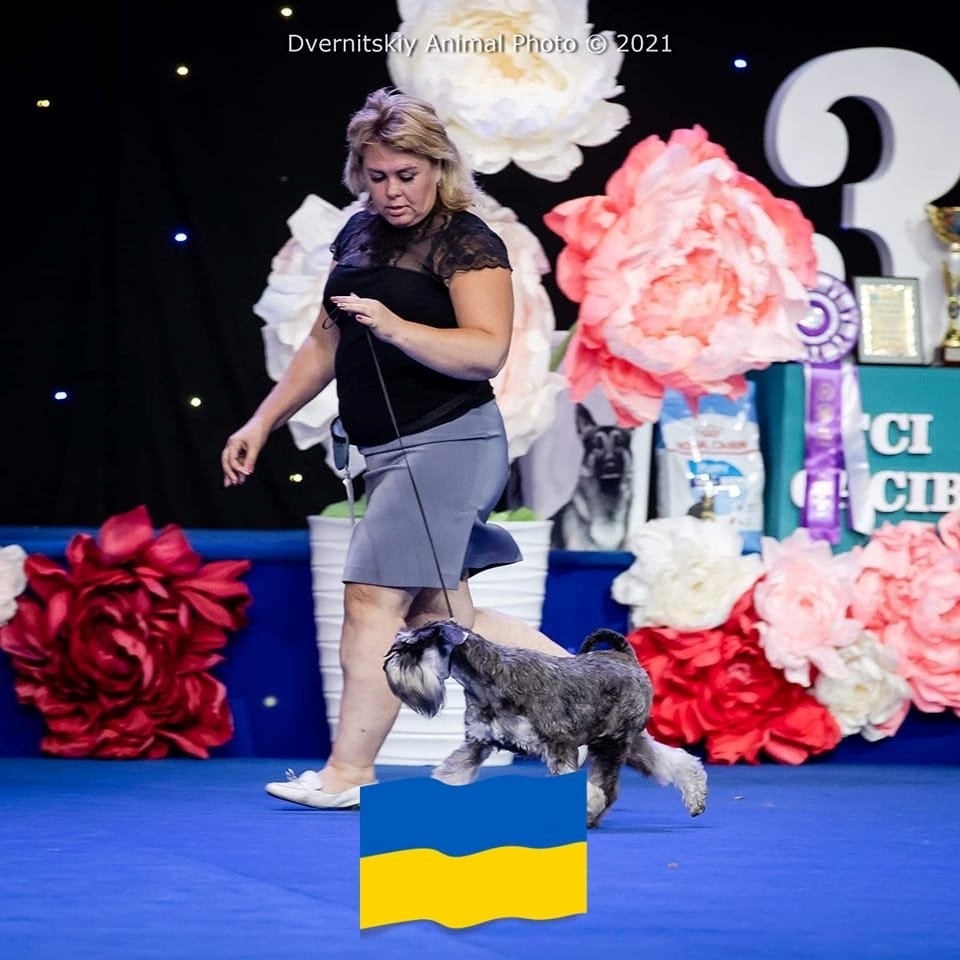
The woman is physically and morally exhausted, misses her son, and needs help.
"Whatever happens, none of my dogs will be in another house. Dogs won’t be handed out. My dogs are champions. They are Mariupol survivors. When we went on walks there, they would hear a plane flying and they already knew in a few minutes I would shout, ‘Kids, home!’ And they’d run home shoulder to shoulder, their heads down, as if they were condemned to death.
You always believe everything will be fine. I still can't fully comprehend what happened. I live as if in a different world, a parallel reality. It seems like a nightmare you will wake up from at home in Mariupo, and everything will be fine," Iryna says in a tired voice and hangs up.
You can help Iryna and her brave zwergs according to the details:
BENEFICIARY
Recipient (name of the recipient of the invoice in Latin)
TROFIMENKO Iryna 87501, Ukraine, region Donetska, city Mariupol, street Druga Slobodka, building 139
IBAN:
UA473052990000026202691127966
ACCOUNT
Beneficiary's bank account (card number or current account in PrivatBank)
5168 7450 3123 3098
4149629388251811
BANK OF BENEFICIARY
Beneficiary's bank
JSC CB PRIVATBANK, 1D HRUSHEVSKOHO STR., KYIV, 01001, UKRAINE
SWIFT CODE / BIC: PBANUA2X
CORRESPONDENT ACCOUNT
Beneficiary bank account with the correspondent bank
623-160-5145
PayPal
INTERMEDIARY BANK
Correspondent bank
J.P.MORGAN AG, FRANKFURT AM MAIN, GERMANY
SWIFT CODE / BIC: CHASDEFX
Card currency: EUR


